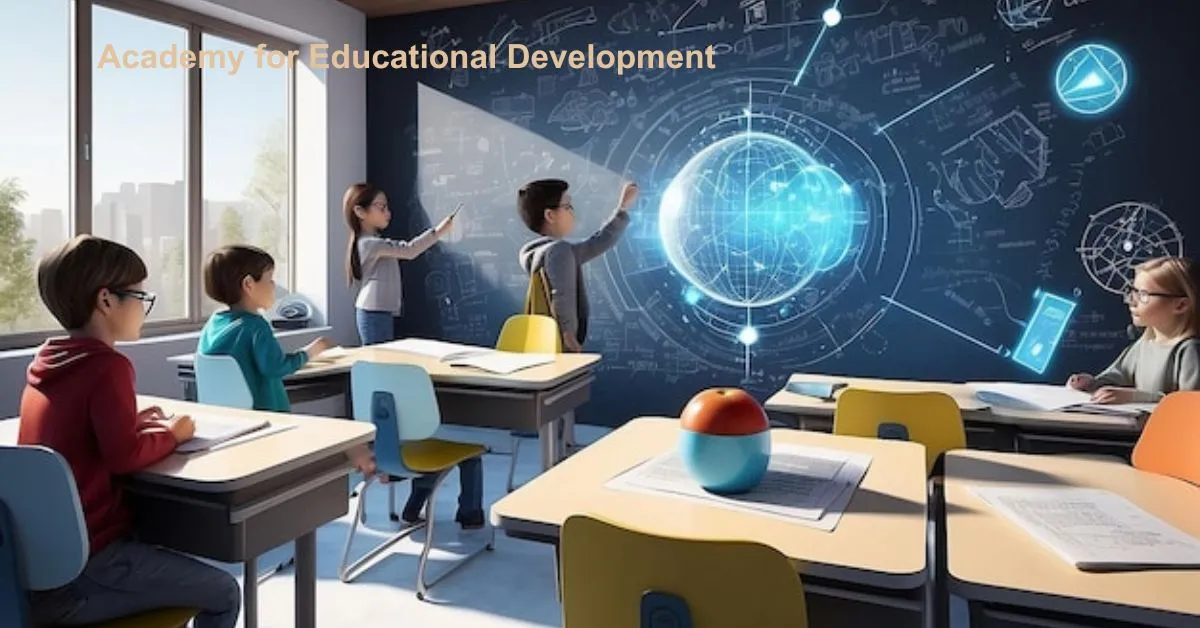Education
Education in Vietnamtimes: Navigating Challenges and Embracing Change

Education in Vietnamtimes,any society’s cornerstone is education, which shapes the brains of future generations. Vietnam is a nation rich in history and customs, and its dynamic economy and lively culture are greatly influenced by education.
Introduction(Education in Vietnamtimes)
There have been substantial changes to Vietnam’s educational system over time. The government has put in place a number of programs to improve learning because it understands how important education is to the development of a country. The history of education in Vietnam, from elementary schools to colleges, is an intriguing one.
Challenges in the Vietnamese Education System
Overcrowded Classrooms
The overcrowding of classrooms is one of the most urgent problems facing the Vietnamese educational system. Schools frequently struggle to handle the sheer volume of pupils as the population grows.
Lack of Resources and Outdated Curriculum
In many schools, there are still resource shortages and out-of-date curricula despite government efforts. This makes it difficult to give pupils a cutting-edge, pertinent education.
Pressure on Students
Students are under a great deal of strain because of the emphasis on academic performance and the intense competition on tests. Students’ mental health issues are now a major concern for educators and decision-makers.
Reforms in Education
Government Initiatives to Improve Education
The Vietnamese government has launched a number of attempts to improve the educational system in recognition of the difficulties. Among the most important ones are teacher training programs, infrastructural development, and more finance.
Introduction of Modern Teaching Methods
Modern teaching techniques like project-based learning and interactive classrooms are being implemented in an effort to make learning more interesting. The goal of this change is to encourage students’ critical thinking and inventiveness.
Emphasis on Technology in Education
Technology integration in the classroom is revolutionary. Technology is transforming education, making it more engaging and accessible for students. Examples of this include smart classrooms and online resources.
Impact of COVID-19 on Education
Shift to Online Learning
In Vietnam, the usage of online learning has surged due to the worldwide pandemic. The speed at which educational institutions adjusted caused a paradigm change in the way that education is delivered.
Challenges Faced by Students and Educators
This change has not, however, been without difficulties. Instructors had to come up with creative ways to educate effectively as students struggled to adapt to distance learning.
Innovations in Remote Education
Notwithstanding obstacles, the pandemic encouraged advancements in distance learning. Innovative examinations, online collaborative resources, and virtual laboratories have all been shown to be beneficial additions to the educational environment.
Higher Education in Vietnam
Overview of Universities and Colleges
Vietnam is home to several different types of schools and universities that provide a large selection of courses. Higher education is become more and more accessible, encompassing both established disciplines and newly developing ones.
Emerging Fields of Study
As the demands of the labor market change, professions like technology, environmental sciences, and entrepreneurship are becoming more and more in demand.
International Collaborations
Vietnamese colleges are promoting partnerships with foreign organizations to provide students more chances and exposure to the world.
Vocational Training and Skills Development
Importance of Vocational Training
The government is supporting skill development initiatives to close the knowledge gap between school and industry demands, realizing the importance of vocational training.
Initiatives to Enhance Skill Development
Initiatives for vocational training are intended to give students real-world experience and prepare them for the workforce after graduation.
Linkage Between Education and Industry
Industry partnerships are becoming a standard feature of the educational process, giving students access to real-world knowledge and experiences.
Cultural Influences on Education
Traditional Values in Education
Vietnamese education has a strong foundation in customs. Students are taught discipline, respect for instructors, and a strong work ethic from an early age.
Influence of Confucianism
Vietnamese culture is still shaped by Confucian educational ideals, which place a strong emphasis on education’s role in advancing individual and communal goals.
Changing Perspectives on Education
Even if traditional values are still important, evolving social dynamics are driving a move toward inclusive and modern educational methods.
Student Life in Vietnam
Extracurricular Activities
In addition to academics, a wide range of extracurricular activities enhance Vietnamese student life. Community service, the arts, and sports are all essential to overall growth.
Student Organizations and Clubs
The lively student body actively engages in a wide range of clubs and groups, which promotes leadership abilities and a sense of solidarity.
Social Challenges Faced by Students
But students also have to deal with social difficulties, and increased awareness of mental health problems has sparked conversations and support networks.
Success Stories
Profiles of Successful Individuals
displaying the achievements of people who came through the Vietnamese educational system in order to demonstrate the positive effects of a high-quality education on both professional and personal development.
Inspiring Journeys and Achievements
These tales, which include scientists and entrepreneurs alike, encourage the next generation to follow their passions and overcome obstacles.
Future Prospects
Ongoing and Future Reforms
Vietnam’s educational journey is a dynamic one. Future projects and ongoing changes seek to solve current issues and adjust to the changing demands of society.
Challenges to Address
For progress to be sustained, issues like guaranteeing equitable access to education and adjusting to quickly evolving technologies must be addressed.
Vision for the Future of Education in Vietnam
envisioning a day when education serves as a vehicle for creativity, critical thinking, and all-around growth in addition to being a method of achieving academic success.
Conclusion(Education in Vietnamtimes)
In conclusion, Vietnam’s educational environment exhibits a variety of difficulties and revolutionary shifts. The country’s educational future seems bright, especially in light of the government’s dedication to reform and societal changes.
FAQs(Education in Vietnamtimes)
Q: How has technology impacted education in Vietnam?
A: Technology has revolutionized education in Vietnam, making it more accessible and interactive through online learning platforms and smart classrooms.
Q: What are the emerging fields of study in Vietnamese universities?
A: Emerging fields include technology, environmental sciences, and entrepreneurship, aligning with evolving job market demands.
Q: How has COVID-19 affected higher education in Vietnam?
A: COVID-19 accelerated the shift to online learning, presenting challenges but also fostering innovations in remote education.
Q: What role does vocational training play in the Vietnamese education system?
A: Vocational training is gaining importance, providing practical skills and bridging the gap between education and industry requirements.
Q: How are traditional values influencing modern education in Vietnam?
A: Traditional values, such as respect for teachers and discipline, continue to shape Vietnamese education, coexisting with modern practices.
Education
Understanding FAFSA: Your Gateway to College Financial Aid

In the journey toward higher education, financial considerations often play a pivotal role. The Free Application for Federal Student Aid (FAFSA) stands as a cornerstone for millions of students in the United States seeking financial assistance to pursue their academic dreams. This comprehensive guide explores everything you need to know about FAFSA, from its significance and application process to tips for maximizing aid opportunities.
What is FAFSA?
The Free Application for Federal Student Aid (FAFSA) is an essential form used by college students and prospective students annually to apply for various forms of financial aid. Managed by the U.S. Department of Education, FAFSA determines eligibility for federal grants, scholarships, work-study programs, and federal student loans. It’s a crucial step for accessing financial resources that can make higher education more affordable and accessible.
Importance of FAFSA
FAFSA plays a pivotal role in the college financial aid landscape for several reasons:
- Access to Federal Aid: It serves as the gateway to federal financial aid programs like Pell Grants, Federal Supplemental Educational Opportunity Grants (FSEOG), and Direct Loans.
- State and Institutional Aid: Many states and colleges use FAFSA information to determine eligibility for their own financial aid programs, making it essential for accessing a broader range of funding opportunities.
- Financial Planning: FAFSA provides a clear picture of a student’s financial need, helping families plan for college costs effectively.
- Renewable Aid: Since financial situations can change yearly, renewing FAFSA annually ensures continuous eligibility for aid throughout a student’s college career.
Eligibility and Requirements
Eligibility for FAFSA is primarily based on financial need, but several factors come into play:
- Citizenship and Residency: U.S. citizens, permanent residents, and eligible non-citizens can apply.
- Income and Dependency Status: Both the student’s and, if applicable, their parents’ income and assets are considered, along with household size and number of family members in college.
- Academic Status: Applicants must be enrolled or accepted for enrollment in an eligible degree or certificate program.
Applying for FAFSA
The process of applying for FAFSA involves several key steps:
- Gathering Information: Collect necessary documents such as Social Security numbers, tax returns, W-2 forms, and records of untaxed income.
- Creating an FSA ID: Both the student and one parent (for dependent students) must create a Federal Student Aid (FSA) ID to electronically sign the FAFSA form.
- Completing the Form: The FAFSA form is available online and typically opens on October 1st for the following academic year. It includes detailed sections about financial information, household size, and dependency status.
- Submitting and Reviewing: After submission, applicants receive a Student Aid Report (SAR) summarizing their eligibility for federal aid. It’s crucial to review this report for accuracy and make any necessary corrections promptly.
Tips for Maximizing Financial Aid
Navigating the FAFSA process can be daunting, but several strategies can help maximize aid opportunities:
- Submit Early: FAFSA opens on October 1st, and some aid programs have limited funds, so early submission increases the chances of receiving maximum aid.
- Use IRS Data Retrieval Tool: This tool simplifies the process by transferring tax information directly from the IRS into the FAFSA form, reducing errors and processing time.
- Provide Accurate Information: Any discrepancies or inaccuracies can delay processing or affect eligibility for aid, so double-check all information before submission.
- Seek Additional Assistance: College financial aid offices and online resources provide guidance and support throughout the FAFSA process, ensuring students understand their options and obligations.
Additional Resources
For more information and to complete your FAFSA, visit studentaid.gov. College financial aid offices also provide personalized assistance and guidance to help you through the process.
This article provides a comprehensive overview of FAFSA, its importance, application process, eligibility criteria, and tips for maximizing aid opportunities. Understanding these aspects empowers students and families to make informed decisions about financing higher education.
Conclusion
FAFSA is not just a form but a gateway to opportunities for millions of students pursuing higher education in the United States. By understanding its significance, navigating its requirements, and utilizing available resources, students and families can effectively manage college costs and access the financial aid needed to achieve academic success. Whether you’re a prospective student embarking on your college journey or a returning student navigating financial aid renewal, FAFSA remains an essential tool for turning educational aspirations into reality.
Education
Academy for Educational Development: Teaching for a Better Future

Education is the foundation of any progressive society, serving as the backbone for future growth and development. But what exactly constitutes educational development, and why is it so vital? Academy for Educational Development involves the improvement of teaching methods, curriculum design, and learning environments to enhance educational outcomes. It’s the process of making education more effective, accessible, and equitable for all.
What is an Academy for Educational Development?
An Academy for Educational Development (AED) is a specialized institution focused on advancing educational practices through research, training, and innovation. These academies aim to improve the quality of education by developing new teaching strategies, creating effective curricula, and fostering an environment conducive to learning. The ultimate goal is to ensure that educators are well-equipped to meet the diverse needs of their students and to help students reach their full potential.
History and Evolution
Early Beginnings
The concept of educational development has been around for centuries, evolving significantly over time. Initially, it involved basic teacher training and curriculum development. However, as educational needs grew more complex, the focus expanded to include various aspects of teaching and learning, such as technology integration and student engagement.
Significant Milestones
Over the years, many significant milestones have marked the evolution of educational development. These include the establishment of dedicated educational development institutions, the integration of technology into classrooms, and the development of comprehensive training programs for educators. Each of these milestones has contributed to making education more effective and inclusive.
Key Components of Educational Development
Curriculum Design
One of the critical components of educational development is curriculum design. This involves creating a structured plan of what will be taught and how it will be delivered. A well-designed curriculum ensures that all students have access to the necessary knowledge and skills they need to succeed.
Teacher Training
Effective educational development cannot occur without proper teacher training. This involves equipping teachers with the skills and knowledge they need to deliver high-quality education. Training programs often include workshops, certification courses, and continuous professional development opportunities.
Student Engagement
Engaging students in the learning process is another essential component. This involves using various techniques and strategies to make learning more interesting and interactive. When students are engaged, they are more likely to retain information and perform better academically.
Technology Integration
In today’s digital age, integrating technology into the classroom is crucial. This includes using digital tools and resources to enhance teaching and learning. Technology can provide students with access to a wealth of information and can make learning more interactive and engaging.
Benefits of an Academy for Educational Development
Improved Teaching Standards
One of the primary benefits of an AED is the improvement of teaching standards. By providing educators with the necessary training and resources, these academies ensure that teachers are well-prepared to deliver high-quality education.
Enhanced Student Learning Outcomes
When teaching standards improve, so do student learning outcomes. AEDs help create an environment where students can thrive academically, leading to better grades, higher test scores, and improved overall academic performance.
Professional Growth for Educators
AEDs also contribute to the professional growth of educators. By participating in training programs and workshops, teachers can enhance their skills and advance their careers. This not only benefits the teachers themselves but also the students they teach.
Community Impact
Improving education has a ripple effect on the community. When students receive a quality education, they are more likely to become productive members of society. This, in turn, can lead to economic growth and a more vibrant community.
Challenges Faced by Educational Development Academies
Funding Issues
One of the significant challenges AEDs face is securing adequate funding. Education is often underfunded, and without sufficient financial resources, it can be challenging to implement effective programs and initiatives.
Policy and Regulation Hurdles
Educational policies and regulations can also pose challenges. Navigating these can be complex and time-consuming, and they can sometimes hinder the implementation of innovative educational practices.
Adapting to Technological Changes
With technology constantly evolving, keeping up with the latest advancements can be a challenge. AEDs must continually adapt their practices to incorporate new technologies effectively.
Successful Models Around the World
Case Study: Finland
Finland is renowned for its exceptional educational system. The country places a strong emphasis on teacher training and student well-being, resulting in high student performance and satisfaction.
Case Study: Singapore
Singapore’s education system is another successful model. The country focuses on rigorous teacher training and a well-rounded curriculum, which has led to excellent academic outcomes.
Case Study: United States
In the United States, various AEDs have implemented innovative programs to improve education. These include incorporating technology into the classroom and developing comprehensive teacher training programs.
Implementing Effective Strategies
Needs Assessment
Before implementing any educational development initiatives, it’s crucial to conduct a needs assessment. This involves identifying the specific needs and challenges of the educational system and developing strategies to address them.
Collaborative Approaches
Collaboration is key to successful educational development. This includes working with teachers, students, parents, and the community to create a supportive learning environment.
Continuous Professional Development
Continuous professional development is essential for educators. This involves providing ongoing training and development opportunities to ensure that teachers can keep up with the latest educational practices and technologies.
Role of Technology in Educational Development
Digital Classrooms
Digital classrooms are becoming increasingly popular in today’s educational landscape. These classrooms use digital tools and resources to enhance teaching and learning, making education more interactive and engaging.
E-Learning Platforms
E-learning platforms provide students with access to educational resources anytime, anywhere. These platforms can be particularly beneficial for students who need additional support or who are unable to attend traditional classes.
Data-Driven Decision Making
Using data to inform decision-making is another important aspect of educational development. This involves collecting and analyzing data on student performance to identify areas for improvement and to develop effective strategies.
Training Programs and Workshops
Teacher Certification Programs
Teacher certification programs are essential for ensuring that educators have the necessary skills and knowledge. These programs provide comprehensive training and are often required for teachers to work in specific educational settings.
Leadership Training
Leadership training is also crucial for educational development. This involves training school leaders and administrators to effectively manage and support their staff and students.
Student Development Workshops
Student development workshops provide students with additional support and resources. These workshops can cover various topics, such as study skills, time management, and career planning.
Community and Parental Involvement
Importance of Community Engagement
Engaging the community is essential for successful educational development. When the community is involved, it creates a supportive environment for students and can lead to better educational outcomes.
Strategies for Parental Involvement
Parental involvement is also crucial. This includes encouraging parents to participate in school activities, communicate regularly with teachers, and support their children’s learning at home.
Policy Recommendations
Government Support
Government support is vital for educational development. This includes providing adequate funding, developing supportive policies, and ensuring that all students have access to quality education.
Private Sector Involvement
The private sector can also play a role in educational development. This includes providing funding and resources, as well as collaborating with educational institutions to develop innovative programs.
International Collaboration
International collaboration can help share best practices and develop effective educational strategies. This involves working with educational institutions and organizations from around the world to improve education globally.
Future Trends in Educational Development
Artificial Intelligence
Artificial intelligence (AI) is set to play a significant role in the future of education. AI can provide personalized learning experiences, automate administrative tasks, and analyze student performance data to identify areas for improvement.
Personalized Learning
Personalized learning is another emerging trend. This involves tailoring education to meet the individual needs and preferences of each student, ensuring that they receive the support and resources they need to succeed.
Global Education Networks
Global education networks are also becoming increasingly important. These networks connect educators and students from around the world, providing access to a wealth of resources and fostering collaboration.
Conclusion
Academies for educational development play a crucial role in improving the quality of education. By focusing on curriculum design, teacher training, student engagement, and technology integration, these academies help ensure that all students receive a high-quality education. Despite the challenges they face, such as funding issues and policy hurdles, AEDs continue to make significant strides in advancing education. Looking ahead, the future of educational development is bright, with emerging trends like AI and personalized learning set to revolutionize the way we educate our students.
FAQs
What is the main goal of an Academy for Educational Development?
The main goal of an AED is to improve the quality of education by developing effective teaching strategies, creating comprehensive curricula, and fostering an environment conducive to learning.
How can parents contribute to educational development?
Parents can contribute by participating in school activities, communicating regularly with teachers, and supporting their children’s learning at home.
What role does technology play in modern educational development?
Technology enhances teaching and learning by providing digital tools and resources, enabling e-learning, and facilitating data-driven decision-making.
Why is teacher training crucial for educational development?
Teacher training is crucial because it equips educators with the skills and knowledge they need to deliver high-quality education and support their students effectively.
How do academies for educational development impact communities?
AEDs impact communities by improving educational outcomes, leading to a more educated and productive population, which can drive economic growth and enhance community well-being.
Education
Clark County Education Association: Empowering Education in Southern Nevada

Organisations like the Clark County Education Association (CCEA) play a crucial role in assuring the quality of education in Southern Nevada, because education is the cornerstone of any society’s growth. In this piece, we’ll examine the background, achievements, and influence of CCEA in the area.
Understanding Clark County Education Association (CCEA)
The Clark County Educators’ Association (CCEA) is a highly visible advocacy group for Clark County, Nevada’s educators, instructors, and educational support workers. It is a nonprofit organisation whose mission is to promote excellence in education and to assist those who work in the field.
History of CCEA
CCEA has a long history of advocating for educational concerns in Southern Nevada. It was set up so that local teachers could communicate with one another and pool their resources to better serve their students.
CCEA’s Mission and Goals
CCEA’s goal is to provide every Clark County student with an excellent education and to equip every educator with the tools they need to succeed. Professional growth, improved working conditions, and more involvement in the local community are all priorities for them.
The Role of CCEA in Education
CCEA is vital to education in many ways. It fights for teachers’ rights to earn a living wage and works to improve their working conditions in order to benefit their pupils. In addition, the group offers helpful materials for teachers.
Benefits of CCEA Membership
Educators can benefit in many ways by joining CCEA. As a member, you’ll have the chance to network with other educators and further your career, as well as receive legal representation if you need it. CCEA gives its members the tools they need to be successful teachers.
Challenges Faced by CCEA
CCEA, like any other organisation, confronts obstacles on its path to achieving its goal of enhancing education. CCEA is dedicated to its mission regardless of funding concerns, governmental shifts, or social obstacles.
CCEA’s Impact on the Community
CCEA does not limit itself to the confines of the classroom. As a result of their hard work, the local community benefits from an improved and more well-educated populace.
Advocacy Efforts by CCEA
CCEA fights tirelessly for measures that improve education for teachers and their students. To spread word of their cause, they organise lobbying efforts, grass-roots campaigns, and public awareness campaigns.
Collaborations and Partnerships
To accomplish its objectives, CCEA partners with several educational institutions, government agencies, and community groups. Their combined efforts will have a greater impact.
The Future of CCEA
CCEA is committed to continuing to shape the educational environment of Southern Nevada as it evolves. Because of their flexibility and perseverance, they will continue to be an influential group in the field of education.
How to Join CCEA
CCEA has a simple membership process for educators who desire to become a part of this influential organisation. By joining, you’ll be connected to a group of educators who share your passion for the profession and are committed to its improvement.
Success Stories and Testimonials
Learn directly how CCEA’s efforts have impacted the lives and careers of educators from those in the field. Their experiences highlight the significance and commitment of the group.
Conclusion
Educators and students in Southern Nevada have a ray of light in the form of the Clark County Education Association. The significance of this organisation is demonstrated by its dedication to high standards in education, advocacy, and community service. Participate in the improvement of Clark County’s educational system by joining CCEA.
FAQs
1. How can I join CCEA?
Joining CCEA is easy. Visit their official website and follow the membership instructions to become a member.
2. What benefits do CCEA members receive?
CCEA members enjoy professional development opportunities, legal support, and a supportive community of educators.
3. Does CCEA only focus on teachers, or do they support all educational professionals?
CCEA represents the interests of all educators, including teachers and educational support professionals.
4. How can I support CCEA’s advocacy efforts?
You can support CCEA by staying informed about their initiatives, participating in their campaigns, and spreading awareness about the importance of quality education.
5. What is CCEA’s vision for the future of education in Southern Nevada?
CCEA aims to continue shaping the future of education by adapting to changing needs and advocating for policies that benefit educators and students.
-

 Technology8 months ago
Technology8 months ago社工库: Navigating the Depths of Social Engineering Databases
-

 News6 months ago
News6 months agoFinding the Truth Behind a Trails Carolina Death
-

 Education7 months ago
Education7 months agoFortiOS 7.2 – NSE4_FGT-7.2 Free Exam Questions [2023]
-

 Technology3 months ago
Technology3 months agoAmazon’s GPT-55X: A Revolutionary Leap in AI Technology
-

 History & Tradition9 months ago
History & Tradition9 months agoλιβαισ: Unraveling Its Mystique
-

 Education8 months ago
Education8 months agoExploring the Significance of 92career
-

 News8 months ago
News8 months agoClaudia Goldin: A Trailblazer in Understanding Gender Pay Gap
-

 Entertainment7 months ago
Entertainment7 months agoFree Tube Spot: Your Gateway to Endless Entertainment












